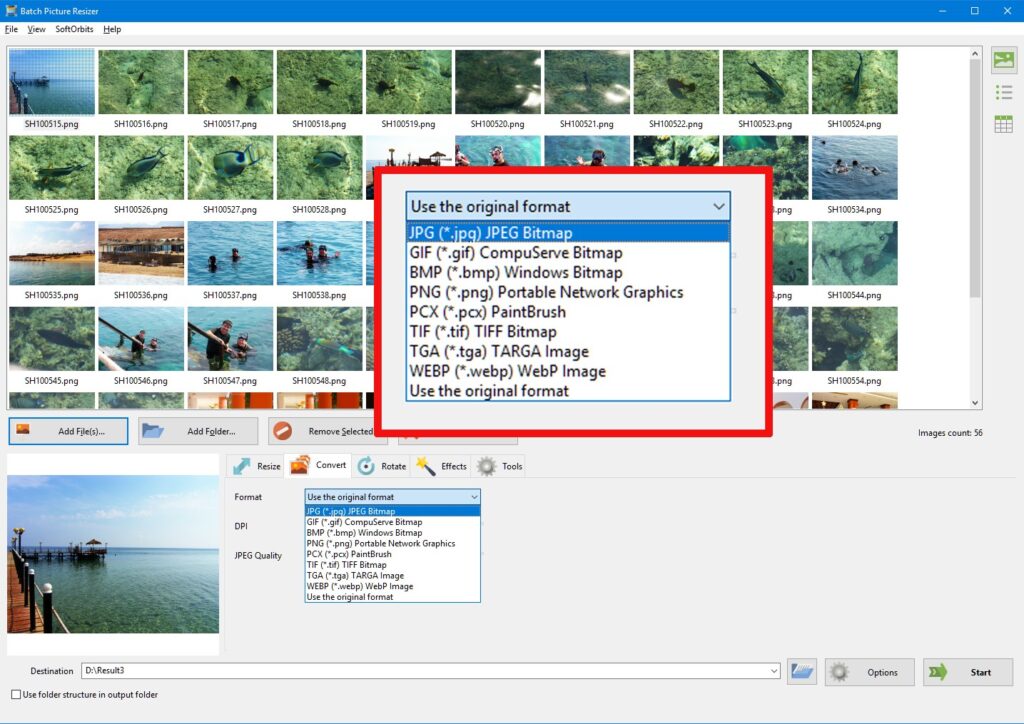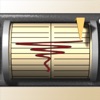What PNG Files Offer That JPGs Don’t?
PNG and JPG files dominate the image landscape, yet they cater to different needs. Each format excels in areas like image quality and file size. Understanding the essence of PNG files helps you make better choices.
Summary
In summary, PNG and JPG serve different purposes. PNG files keep quality, support transparency, and provide richer colors. They excel in web graphics, logos, and digital artwork. On the flip side, JPG files win with smaller sizes and quicker loading, making them ideal for photos.
Want to switch formats without hassle? SoftOrbits helps convert images to your required format. This software offers an easy interface for seamless conversions while maintaining quality. Enjoy minimal effort and maximum results!



1. Lossless Compression
Lossless compression stands at the core of PNG’s appeal. By preserving all data during compression, PNG files ensure clarity even after edits. JPG files, however, use lossy compression. They toss out some image data to decrease file size, making storage simpler. Unfortunately, this approach can lead to quality loss and pesky artifacts over time.
Want sharp images, go for PNG files. Their performance shines when quality matters, especially in logos and graphics. Looking to capture moments, JPG files work wonders for photographs needing little adjustment. They save space and still offer decent clarity.
2. Transparency
PNG files excel because they support transparent backgrounds. This feature makes them the top choice for web graphics and logos. Wanting to layer an image over another, PNGs effortlessly blend into different backgrounds. JPGs, however, completely lack this ability.
Transparency doesn’t exist with JPG files. This limitation hampers their effectiveness in design projects needing unique shapes. Logos or icons appear messy in JPG format if they require transparency.
- Need images that merge seamlessly, opt for PNG for logos or icons blending with backgrounds.
- Looking for simplicity, JPG works best for images with solid backgrounds where transparency isn’t required. Your choice impacts the visual outcome.
3. Superior Quality for Text and Graphics
PNG files shine when handling images with text and graphics. These formats keep your visuals sharp and clear. Thanks to lossless compression, PNGs avoid annoying artifacts that might ruin text in JPGs. When clarity matters, think screens, icons, or any digital artwork.
JPG files do fit nicely, focusing on photographs where minor data loss isn’t critical. Yet, for line art and text, JPGs can blur edges and distort colors. Such blur can make reading challenging, and nobody wants to squint at their screens.
- Need precise images, PNG is your best friend for illustrations and text-heavy graphics.
- Choosing JPG works for complex images like photographs when minor detail loss is acceptable.
4. Higher Color Depth
Color depth is one area where PNG files outshine the rest. They support 24-bit RGB and 32-bit RGBA, offering a range of beautiful colors. This broader spectrum helps images that need precision and vibrancy. JPG files manage up to 16 million colors but fall short of PNG’s depth. This limit affects how well they express intricate color schemes.
- For vibrant and precise graphics, choose PNG.
- JPG suits everyday photos where color detail doesn’t matter much.
5. Interlacing for Faster Loading
PNG files introduce a clever feature called interlacing. This feature allows images to load in stages, offering a quick preview. Users with slower connections really appreciate this gradual reveal. Clarity improves as the whole image appears, enhancing the viewing experience.
JPG files lack this progressive loading perk. Instead, they load from top to bottom all at once. While they typically have smaller file sizes and load quickly, they miss out on the gradual loading charm that PNGs offer.
- Need progressively loading images, go for PNG, especially for web graphics on slower networks.
- If speed is key, JPG works better for images where gradual loading isn’t crucial. Your choice affects how others perceive visual content.
Related Apps
Latest News
- What PNG Files Offer That JPGs Don’t?
- How to secure your startup business in the online space: A guide to VPNs
- Unleash the Potential Features of CapCut Desktop Video Editor
- What Makes a Nursing Home 5-Star Rated? Key Qualities to Look For
- A Quick Guide to Working With Offline And Online JPG Background Removers
- Pixel Perfect: Converting PDF to JPG for Visual Impact





